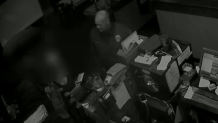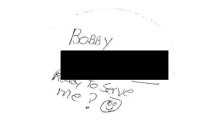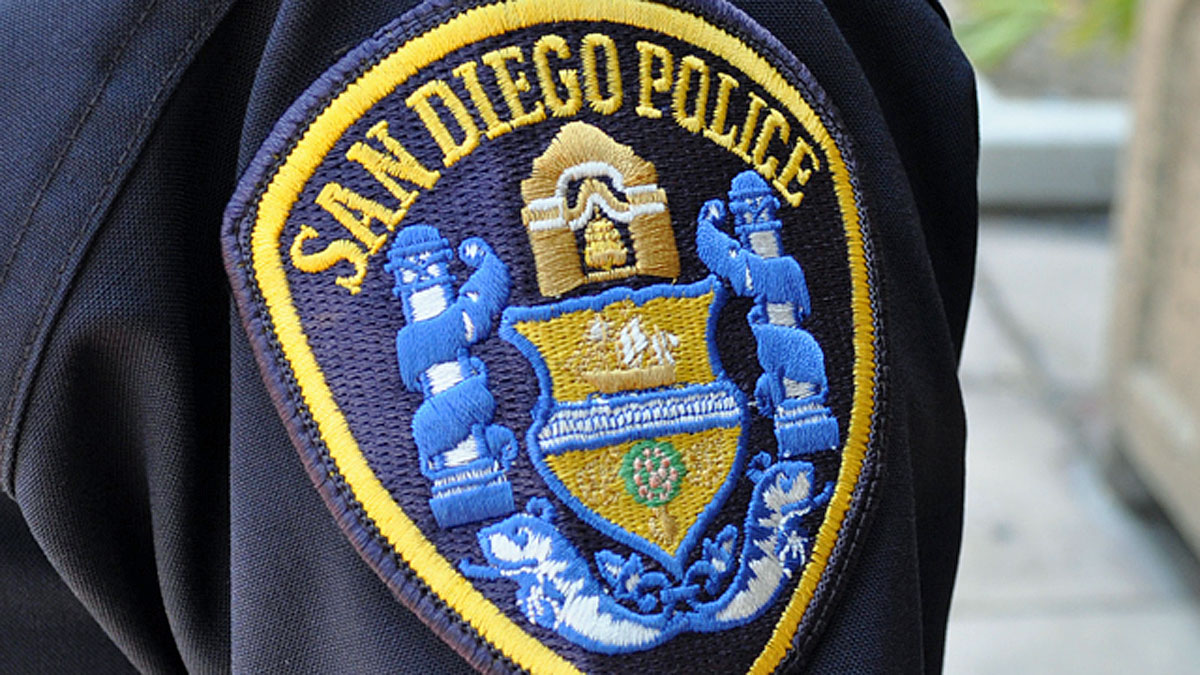A lot of records are missing, NBC 7’s Alexis Rivas reports.
Newly-implemented California laws are shedding light on how law enforcement agencies investigate and discipline officers. This new mandated transparency reveals dozens of local cases where the San Diego Police Department found its own officers used excessive force, exhibited racist behavior, sexually harassed members of the public or fellow officers, conducted unlawful searches, failed to use body cameras properly and more.
California’s SB16 and SB1421 require law enforcement agencies to publish the full investigative and disciplinary records in cases where the department found evidence of officer misconduct of the following nature:
- Violation of the law
- Lying while carrying out their law enforcement duties
- Using excessive force
- Failing to intervene against another officer that used excessive force
- Exhibiting prejudice or discrimination
- Making an unlawful search or unlawful arrest
Investigative records must also be released in cases where an officer discharges their firearm or uses force that causes death or great bodily injury.
Get top local stories in San Diego delivered to you every morning. Sign up for NBC San Diego's News Headlines newsletter.
NBC 7 Investigates reviewed 68 internal affairs investigations from the San Diego Police Department for incidents that took place from 2014 to 2022. We spoke with city leaders and police oversight officials who say they found the cases “eye-opening” and “disturbing.” They also called for more transparency and accountability from police.
Since 2014, there have been multiple findings of discriminatory behavior by San Diego Police officers, including several supervisors. One such incident happened on Jan. 27, 2021. A group of officers, including a K9 officer and their dog, arrested several illegal gambling suspects inside a business. While an officer handcuffed one woman, multiple body camera recordings captured Sgt. Brandon Woodland saying, “It only likes dark meat.” Investigative reports describe the woman as Asian or Hispanic. The officer handcuffing her is White. During questioning, Woodward told investigators he was referring to the officer, not the woman. And he said it wasn’t a comment about race, but about the physical fitness of the arresting officer. He told the investigators that officer had lost a significant amount of weight. He described white meat as being lean and dark meat as being fatty. He said that officer was nervous about being bitten by the dog, and his comment was a joking way to assure him he’d be fine.
Investigators didn’t see it that way. They said at least one other officer felt uneasy and upset. The report said his comment violated equal employment opportunity policies relating to racial discrimination. Woodland said he regretted the statement and acknowledged it was inappropriate. The department suspended Woodland for eight working days, gave him a disciplinary transfer to another division, removed him from collateral duty as a Field Training Sergeant, and required him to attend 40 hours of cultural diversity training.
Many of the newly released files from cases after 2014 are findings of excessive force. Two of the investigations involve the same person, Officer Ian Mcnett. Internal Affairs investigated him for two similar incidents – both started with him confronting someone he accused of smoking on the Pacific Beach boardwalk.
The first incident took place on May 23, 2019. Investigative documents and body-camera video shows Officer McNett approaching a woman holding an unlit cigarette in her mouth.
Officer McNett: The reason I’m contacting you is that you’re smoking on the boardwalk.
Woman: I’m not smoking.
Officer McNett: Well you had a cigarette in your mouth and a cigarette in your hand and you can’t be smoking on the boardwalk.
Woman: I’m not smoking.
Officer McNett: Do you have your driver’s license on you, ma’am?
Woman: I’m not…
Officer McNett: Hold on ma’am, stop, you’re not free to go, hold up, ma’am.
Woman: Are you detaining me?
The video shows McNett handcuffing the woman after she starts walking away from him. He tells her it’s illegal to hold a lit or unlit cigarette in her mouth on the boardwalk. A few minutes later, she’s uncuffed and given a citation for smoking on the boardwalk. The internal affairs investigation found that she was not breaking the law and was wrongfully arrested. In addition, investigators found McNett improperly used his handcuffs by not “double locking” them. Handcuffs that can be ratcheted while being tightened have a second lock that prevents them from being tightened further to prevent injury. For these sustained allegations, Officer McNett was given a letter of reprimand.
And then on June 14, 2021, Officer McNett arrested another woman for smoking on the boardwalk, but this time internal investigators said the officer lied about what happened next. Investigative documents and body camera video shows McNett and the suspect arriving at a police station for booking. The suspect complains when McNett and another officer try to secure her in the vehicle with a seatbelt. While resisting their efforts, the report states that she tried to get out of the vehicle and tried to kick an officer. McNett pulled her out of the vehicle to the pavement, which investigators said was warranted by her actions. However, once she was no longer resisting on the ground and still in handcuffs, McNett used pepper spray on her eyes. Investigators ruled that use of force was excessive.
In his police report, McNett claimed she tried to kick him on the ground before he pepper sprayed her. Investigators said that didn’t happen. For this incident, McNett received another letter of reprimand. However, McNett refused to sign the letter. He’s still employed with San Diego Police as an officer.
Over the last eight years, the San Diego Police Department has also disciplined several of its own officers for sexually offensive behavior.
The investigation of Sergeant Buddy Johnson narrowed in on an incident at a restaurant on Oct. 13, 2018. However, the report states that several of the employees interviewed by the department told investigators they witnessed similar patterns of behavior from Johnson for years.
Several waitresses at the restaurant say Johnson made repeated sexual comments, leered at their bodies, and made them feel uncomfortable. Some excerpts from those interviews include the following statements:
"How am I supposed to talk dirty to you if l am sitting in the middle of all of those people?"
“I want to take that bow out of your hair and tie you up."

After that statement, Johnson gave the waitress an official police badge sticker. On the back, Johnson wrote, “Ready to serve me?”, along with a drawing of a smiley face with a tongue sticking out. He included a phone number with the number 69 underlined.

The waitress told investigators, “I was just caught off guard, that someone in a uniform, when you are supposed to feel safe around somebody like that, just made me feel so violated.”
During his interview with investigators, Johnson denied making either of those sexual comments. He also said he intended to underline the entire phone number and that his comments were expressing frustration with slow service, and weren’t meant to be taken as sexual. However, Johnson acknowledged that he didn’t represent the department well.
The report says Johnson, “While on duty and in police uniform, behaved in an inappropriate and sexual manner toward employees at two restaurants.” The department suspended Johnson for eight working days and gave him a disciplinary transfer which required closer supervision by his superiors. Johnson is no longer employed with the San Diego Police Department. The city will not tell NBC 7 Investigates whether Johnson was fired or whether he resigned or retired, citing public records laws that exempt the disclosure of why government workers are separated from employment.
"It was eye-opening,” said Sharmaine Moseley, the interim director for the City of San Diego’s Commission on Police Practices.
She told us one case in particular concerned her, where the narrative in the investigative documents didn’t seem to line up with what she watched on the police body camera. It stems from an incident involving Officer David Serrano on March 27, 2020. He was one of several officers responding to a traffic stop where a juvenile driver got out of the vehicle and tried to run away. The officers caught up with the teen boy and put him in handcuffs.
The report then states, “BWC [body worn camera] captured Officer Serrano escorting [redacted] aggressively and [redacted] body collided with the front bumper/hood of a patrol SUV.”
The video shows Serrano picking the juvenile up and roughly slamming him onto the hood of a police SUV, crying out in pain. After the slam, Serrano can be heard saying, “I’m so [profanity] disappointed in you. You have no idea.”
Moseley says the word “collided” in the report doesn’t match what happened in the video.
“There was a lot of untruthfulness in that one case, right,” Moseley said. “So that was disturbing to me, that there was untruthfulness.”
Moseley said that raises questions about whether San Diego Police can police themselves. In addition to an unreasonable amount of force, the department also found Serrano failed to document the use of force properly, didn’t turn on his body camera during the first part of the apprehension and didn’t complete a juvenile contact report.
The department suspended Serrano for 15 working days and transferred him to another division. He’s still employed with the San Diego Police Department.
But Moseley feels some officers named in these files should have been fired, not kept on patrol, or in some cases, later promoted.
“It’s disturbing,” Moseley told NBC 7 Investigates.
Jared Wilson, President of the San Diego Police Officers Association has a wholly different reaction to the newly released records. He says the records show San Diego Police holds its own officers accountable for misconduct.
“What you don’t see in the paperwork is that these disciplinary actions can have a huge, long-lasting impact on an officer’s career,” Wilson said.
He also says most officers joined with the understanding personnel files were private.
“That wasn’t the deal for what they signed up for,” Wilson said.
Wilson says he understands why some officer misconduct, like criminal activity, warrants full public transparency. But he says more minor offenses are often corrected after a letter of reprimand, and most officers go on to become professional and upstanding employees for decades afterward.
“This does nothing to help recruit or retain officers,” Wilson said. “This does not encourage anyone to become a police officer or stay as a police officer in the state of California. At a time when we’ve lost 500 officers since July of 2020, this just hurts us even more.”
However, he acknowledged the disclosure laws haven't impacted staffing, saying, “Is this going to be a crushing blow for us? Probably not.”
More Coverage on the San Diego Police Department
Councilmember Monica Montgomery Steppe serves as the Co-Chair of the Public Safety Committee, which oversees police.
“In no world will I ever support relieving us of our duties of oversight for the sake of having more officers,” Montgomery Steppe said. “I think that the way that we conduct ourselves, we should be able to hire more officers, with the understanding that there is accountability and oversight.”
Between 2014 and 2021, the department fired at least one officer for misconduct, and three others resigned. Montgomery Steppe feels that number should be higher.
“There are some egregious violations that I just don’t think the officers that committed them should be trusted with a badge,” Montgomery Steppe said.
But Wilson says while it may not sound harsh, a letter of reprimand can prevent special unit assignments and promotions for years.
“Having that paper in your file when you’ve never been in trouble in your entire life it’s impactful, it’s meaningful, and it has an effect on your career,” Wilson said.
That “paper in your file” seems to be a common route for discipline. We reviewed 68 sustained findings of officer misconduct since 2014. 16 officers were disciplined with a letter of reprimand.
However, it was impossible for NBC 7 Investigates to get a complete picture of how the San Diego Police Department disciplines officers because 37 of those 68 cases were missing investigative files with discipline information.
Montgomery Steppe said it's understandable that some records are missing. Especially for older records that historically weren’t legally required to be published or saved for long periods of time.
“I think it is important to get to the bottom of it,” Montgomery Steppe told us. “I appreciate you chasing this down because it's important. And we want to meet the spirit and intent of SB16.”
A police spokesman said they just can’t find some records. They also told us:
“The driving factors in whether discipline is retained in SDPD records is employment status and the agency’s retention schedule. The minimum retention schedule is set by law and was recently extended under SB 16 going forward, but many agencies like SDPD have much longer retention schedules than required by law. SDPD retains formal discipline (reprimands and higher, for the employee’s entire career plus three years after separation. Thus, when an officer retires, resigns, or separates to join another agency, the clock starts for when documents are purged from our records system. Additionally, the type of discipline received may dictate how long it is retained by the agency before it is purged, and different Departments within the City have different retention periods based on the City’s master retention schedule.”
However, we found several examples where disciplinary documents were missing for officers who are still active in the department.
The new law mandates that all complaint documents and findings in cases like this have to be retained by departments for no less than 15 years if investigators find wrongdoing.
Out of 63 San Diego Police officers named in these misconduct investigations since 2014, more than half, 34 are still on the force. The city will not reveal if the remaining 29 were fired, resigned or just retired. We are awaiting details on the status of four other officers.
NBC 7 Investigates was repeatedly denied interviews for this story by the San Diego Police Department. We asked to speak with Police Chief David Nisleit, a high-ranking internal affairs investigator, or even a department spokesperson. Instead, we were provided with this statement:
“The San Diego Police Department is committed to holding its officers to the highest standards. When officers fail to meet those standards, SDPD thoroughly investigates and determines if any violation of law or policy occurred. Every complaint from a community member or employee is thoroughly investigated and reviewed. Many of these investigations are more than 100 pages long. The documents released by SDPD in compliance with Senate Bill 16 correspond to the roughly 100 personnel investigations that revealed serious misconduct over the last 30 years and millions of contacts with the communities SDPD serves. Many of the officers in these cases are no longer with SDPD. Of the officers that remain, they continue to be held to the highest standards. When an officer receives discipline, the penalty is determined by police managers and legal advisors to ensure accountability for the officer while following labor, employment, and civil service laws. SDPD continues its commitment to transparency, trust, and public safety. Members of our community who believe they have witnessed misconduct can file a report with SDPD Internal Affairs or the Independent Commission on Police Practices.”
City Councilmember Marni von Wilpert, who chairs the Public Safety Committee also provided this statement:
“Transparency in our police department is critical to build trust between officers and the community, and the release of these records is a vital step towards that trust. Being transparent with residents is key to building the best staffed and best trained police department we possibly can. Going forward, we must learn from this and do everything we can to prevent bad actors from getting on the force in the first place.”
We also reached out to each of the officers mentioned in this story to give them an opportunity to respond. We never heard back.
The City of San Diego posts information on officer investigations here.
There are two ways people can file complaints against San Diego police officers. One method is directly to the San Diego Police Department. The second is through the city's Commission of Police Practices.



